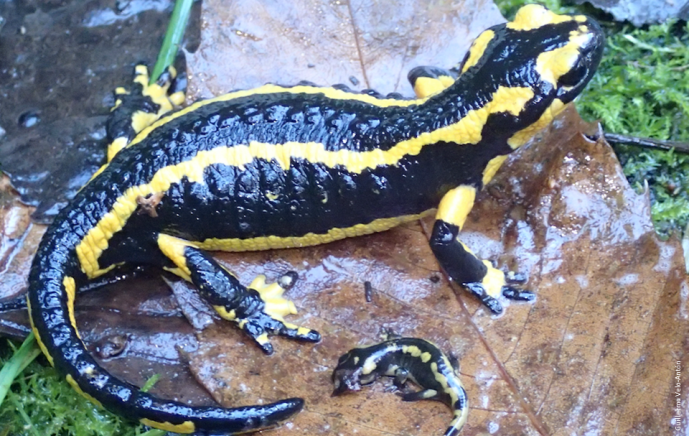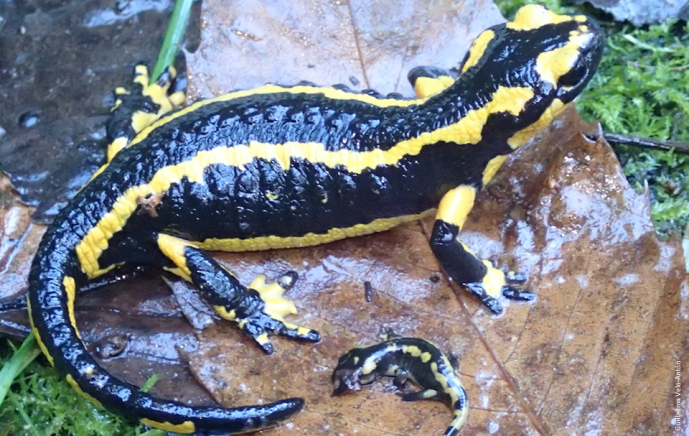SALOMICS: Genetic and ecological drivers of reproductive mode shifts in salamanders: a comparative approach
Reproductive mode shifts are important evolutionary adaptations and understanding the genetic and ecological mechanisms underlying these shifts is a central topic in evolutionary biology. Viviparity, the skipping of the larval stage and the internal development of fully developed juveniles, is a remarkable reproductive mode in amphibians with important ecological and evolutionary consequences. We will study a unique natural system, the Salamandra genus, where the shift to viviparity occurred independently four times throughout the evolutionary history of this clade, with two species displaying an exceptional intra-specific diversity in their reproductive mode. With a strong baseline obtained from previous work, we will examine the genomic and ecological mechanisms underlying viviparity in a comparative framework.

Miguel Jorge Pinto Carneiro
Ivan Gómez-Mestre (Estación Biológica de Doñana, CSIC), Iñigo Martínez-Solano (Museo Nacional de Ciencias Naturales (MNCN-CSIC), David Buckley (Museo Nacional de Ciencias Naturales (MNCN-CSIC), Wieslaw Babik (Jagiellonian University), Aureliano Bombarely (Virginia Tech), Ian J. Wang (UC Berkeley), Lucía Alarcón Ríos (Universidad de Oviedo)




